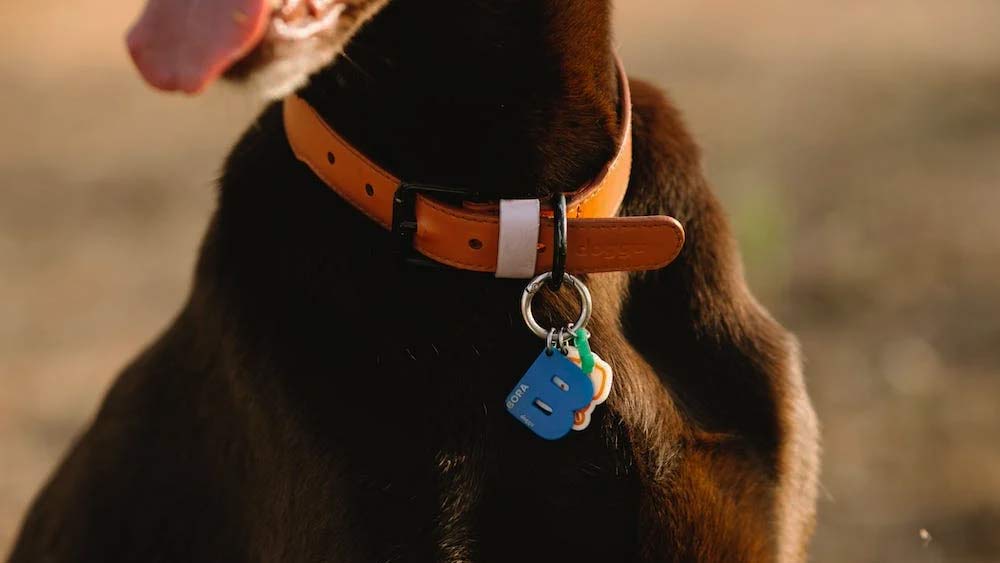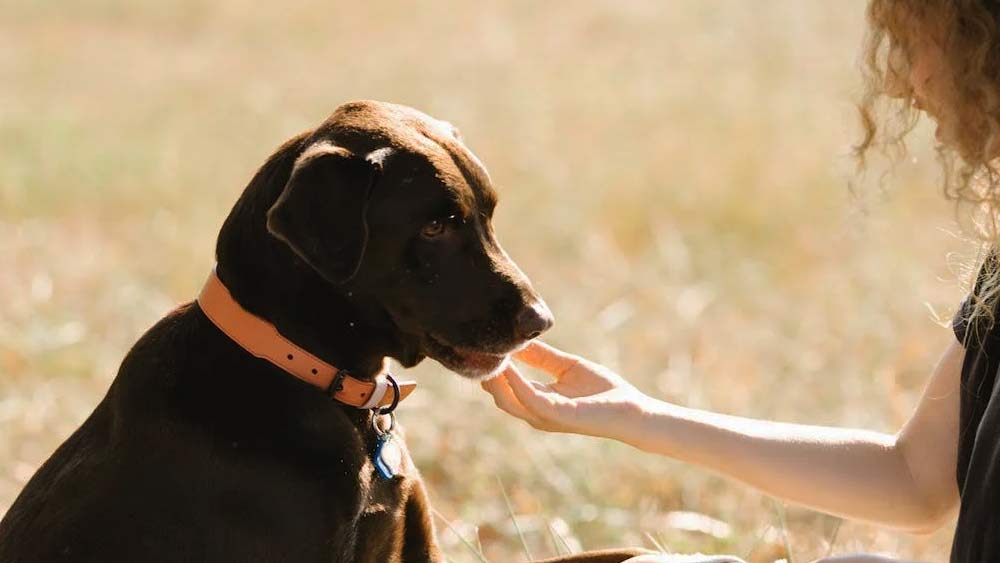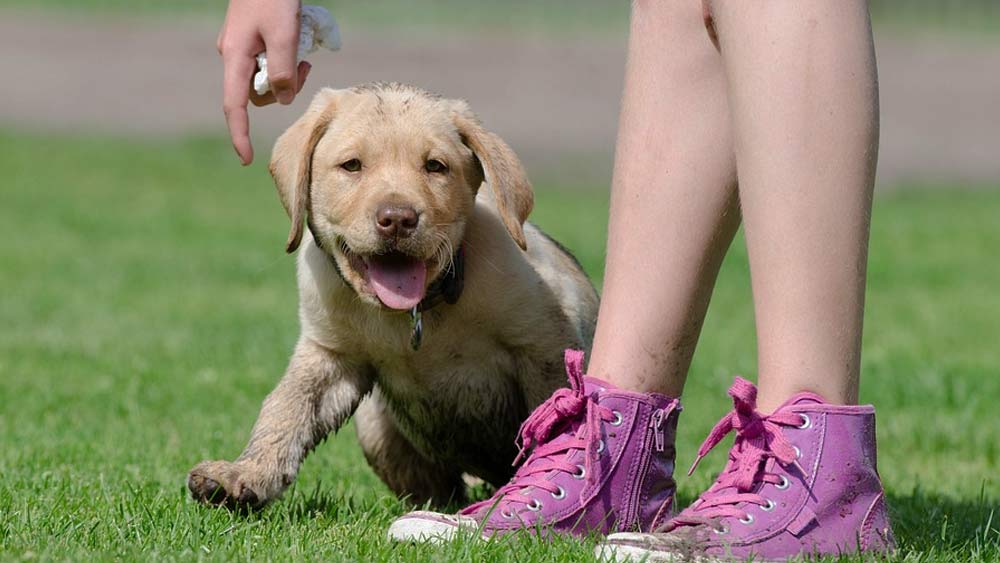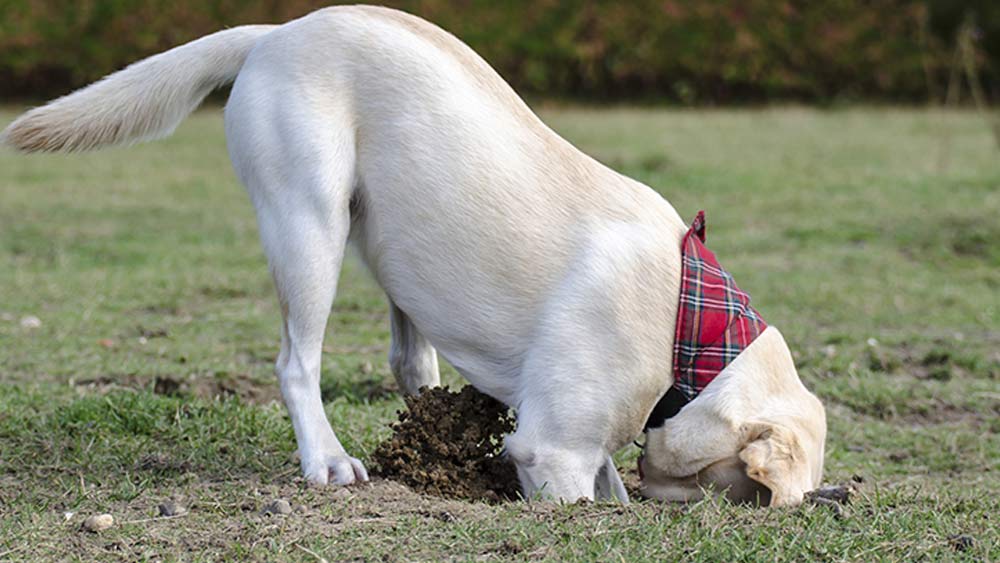It’s heartbreaking when a Labrador Retriever becomes aggressive because the breed is associated with sweetness and can brighten anyone’s day. Owners and fans may be perplexed, if not threatened. Let’s take a look at four possible explanations for this.
Why is my Labrador suddenly hostile is the question. When a Labrador retriever develops an aggressive personality, a number of psychological, physical, and evolutionary factors come into play. While minor incidents of violence may resolve on their own, more serious ones almost always necessitate immediate medical attention.
Read More: Labrador Retriever History : What you didn’t know!
Watch out for Early Signs
Owners who don’t understand what motivates their dog’s aggressive behavior can aggravate or even encourage it.
Watch out for the signs. Before a dog gets aggressive, it will always show some signs. If they happen more often than usual, this could make the dog act aggressively. The signs of aggression are not always easy to spot, even when they are obvious. So, some pet owners think their pet is acting aggressively when they didn’t expect it to when, in fact, they just missed the warning signs.
Here are some signs to look out for:
- Warning growls
- Putting out teeth by curling the lip
- Raised hairs on head and neck
- Pacing or charging
- Biting forcefully
- Death stares
- Loud barking
- Fixed Stance
Fear-Induced Aggression
Fear in Labradors can develop gradually from puppyhood or suddenly in the aftermath of a painful experience or a dangerous situation.
puppyhood trauma
Fear-based aggression usually stems from traumatic experiences the dog had as a puppy or shortly after birth.
Read More: 16 Tips for Socializing Your Labrador Puppy + FAQs
Dangerous Situations
Fear-based aggression, like human aggression, is difficult to identify and frequently results in violence (biting, scratching, attacking).
In short, when a Lab feels confined, unable to flee, or threatened, it is more likely to act aggressively out of fear.
Read More: 50 Things That Scare Most dogs! (and solutions)
You use violence to stop the violence.
Labradors are very sensitive and take on the traits of their owners. If the owner acts violently, the lab is more likely to do the same. Instead, it would be better to give it rewards for good behavior and use positive reinforcement training to get it to act the way you want it to.
protecting the home or its owner
What if your Labrador gets violent? This could happen if someone threatens their territory or their family. If this is the case, you will notice that if your lab gets mean when people come to your house or knock on the door, it is probably trying to protect itself.
Read More: Are Labradors Protective of Their Families? Explained!
copyright Wikimedia commons sgilsdorf
Illness-Induced Aggression
Chronic aggressiveness can develop in labs of all ages and stages of illness. There are two types of diseases to consider when attempting to determine the cause of your Lab’s aggressive behavior:
Pain from Injury
Regional pain is the discomfort that a dog feels when it has an illness that affects a specific area of its body (such as an infected ear, an infection of the intestines or stomach, a tumor, etc.).
If your Labrador’s aggression only manifests itself when a specific area of its body is provoked (such as when you scratch its ear), regional pain may be to blame.
Overall Pain
Generalized pain, on the other hand, is caused by a disease or condition that affects the entire body. In this kind of pain, labs are always aggressive and rude.
The following are some examples of issues that can cause such pain:
- Infection with the influenza virus
- Inflammation of joints and pain throughout the body
- Cancer
- Bone Structure Issue
Canine cognitive dysfunction (CCD)
CCD is a behavior disorder that affects older dogs. CCD dogs show strange behaviors like confusion, changed relationships with people, other animals, and the environment, changes in their sleep-wake cycle, aggressive behavior, and different ways of doing things.
Gene Pool
Your Labrador’s sudden aggressiveness could be due to its upbringing or the background of its parents.
Unlike fear-motivated dogs, Labradors may become violent in response to a learned trigger during their upbringing rather than a trauma-inspired trigger.
The genetic background of your Labrador’s parents can influence whether or not your dog is aggressive. your Labrador’s sudden hostility is the result of genes passed down from their parents, there isn’t much you can do to solve the problem.
Read More: 21 Common Dog Diseases (and What To Do)
Frustration Driven Aggression
Labradors are very intelligent and active dogs, so when faced with a situation they can’t solve or control, they tend to become frustrated. This frustration can lead to outbursts of aggressive behavior.
Uncomfortable Situations
Your Labrador’s annoyance is most likely a reaction to the unpleasant circumstances it is forced to endure. For example: If you’ve recently moved in next door and your Labrador retriever becomes agitated whenever it goes outside, it’s safe to assume the source of the problem is your new neighbors.
Read More: Stress in Dogs : Causes, Signs and solutions
Not getting enough exercise.
Every day, Labradors should do something. If they don’t get enough exercise, they might start acting strangely. Most people suggest that they work out for at least an hour every day.
Read More: How much exercise do Labradors need? (0 to 100 explained)
No one to play with.
If your lab is mean to other dogs and people but not to you, he did not get enough socialization when he was a puppy. Dogs learn a lot about who to trust when they are young.
Read More: Can Labradors be Left Home Alone? Complete Guide
How to train a Labrador that has become aggressive (but not before).
It is hard enough to endure your dog`s aggression and stay calm. But you must stay firm and follow some steps to be able to reduce aggressive behavior in your Labrador. Here are some tips to help you
Observe reactions closely.
Every time your lab reacts aggressively, he strengthens a perception that makes that behavior more likely and harder to change. Therefore, it is very important that you are aware of the reactions your lab has to certain situations.
Don’t traumatize your dog
aggressive behavior caused by trauma is harder to change. Avoid punishing your dog too harshly, it can make the situation worse.
Avoid reinforcing bad behavior
Don’t reward aggressive behavior by giving attention or treats. Instead, reward and praise the calm behavior your dog shows in a safe environment.
Read More: 19 Ways to Encourage Good Behavior in Your Puppy
Reward positive behavior.
Use Rewarding desired behaviors (treats, toys, back pats, belly rubs) to calm and less aggressive your dog.
Attention and affection
Don’t neglect or abandon your dog for long periods.
Read More: 16 Reasons Why Dogs are the cure for loneliness!
Don’t lose his interest by being dull.
Uninterested dogs are destructive. If you don’t engage your lab, he’ll misdirect his energy.
Consistent Physical Activity
High-intensity exercise can help your dog release pent-up energy that could cause aggression.
No Surprises
An aggressive lab sees outsiders as a threat, so avoid surprises.
show some love
dogs respond to love so it’s best to show some love in situations where your pup is angry or on the edge.
Respect boundaries
sometimes your Labrador is frustrated by you and how you act and handle it. take a step back and keep your distance and let your dog come to you for affection.
Professional Help
Sometimes there is nothing you can do to correct a behavior and you should seek professional help from a behavioralist. Your vet can recommend them to you!
Read More: How to Raise a Labrador! (All Questions Answered)
Read More: how to train your Labrador Retriever: 15 most essential tips
What to do if your lab gets mean out of the blue
In some cases, if your Lab’s behavior is caused by a mental health issue or a physical problem in your home, he or she may need a new place to live or medicine. The first thing you should do is take your pet to a vet to find out what’s wrong and treat it. You might be given a list of suggestions to help calm down your Labrador and deal with its aggression issues. Other than that, you can use training to help your dog calm down.
When Labrador Retrievers act aggressively out of the blue, it may take a long time and a lot of work to fix the problem. Don’t give up.
Conclusion
It is essential to understand the root cause of your Labrador’s aggression in order to properly address it. If genetics are at play, there may be little that can be done to change their behavior. But if your lab’s aggressive outbursts are due to a lack of socialization, too much pent-up energy or an uncomfortable situation they have been placed in, then you should consider using some training techniques and providing more exercise and attention for them. Additionally, professional help from a behaviorist might also be necessary depending on the severity of the problem. Ultimately, with patience and understanding, you can work towards restoring harmony between yourself and your Labrador Retriever so that both of you will enjoy each other’s company once again!
Read More: Why Do Labradors Dig Holes? Explained in Depth!
Read More: How to Stop Labradors Jumping Up: Complete Guide
Read More: Male & Female Labrador Retrievers: 16 Differences
Read More: Owning a Labrador: 27 Pros & 20 Cons!
Read More: Golden vs. Labrador retriever & 10 main differences





















